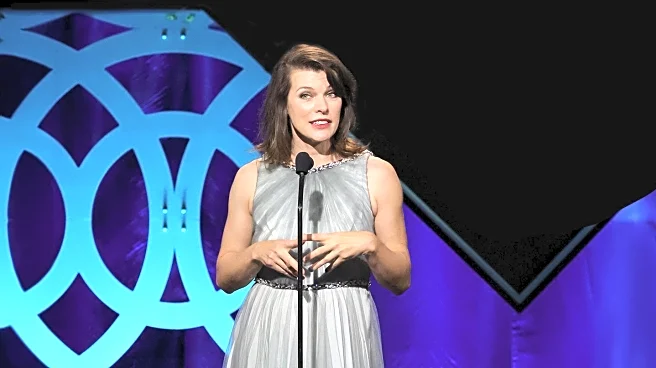What's Happening?
The National League Wild Card Game 1 between the Los Angeles Dodgers and the Cincinnati Reds is set to air nationally on ESPN. The game will feature left-hander Blake Snell starting for the Dodgers against right-hander Hunter Greene of the Reds. Snell, who signed a five-year contract with the Dodgers, has been recovering from a shoulder injury but has shown strong performance with a 2.35 ERA in recent starts. Greene, making his postseason debut, has been pivotal for the Reds, who secured their playoff spot on the final day of the season. The game will be played at Dodger Stadium, with the first pitch scheduled for 9:08 p.m. ET. Viewers can stream the game live via the ESPN app and Fubo, which offers a free trial.
Why It's Important?
The broadcast of the Dodgers vs. Reds game on ESPN highlights the network's role in shaping MLB viewership and accessibility. By offering streaming options through the ESPN app and Fubo, ESPN is catering to a growing audience that prefers digital platforms over traditional cable. This shift is significant for MLB as it seeks to engage younger viewers and adapt to changing media consumption habits. The game itself is crucial for both teams, with the Dodgers aiming to defend their title and the Reds looking to capitalize on their surprise playoff entry. The performance of key players like Snell and Greene could influence team dynamics and postseason strategies.
What's Next?
Following Game 1, the Dodgers and Reds will continue their best-of-three series, with subsequent games scheduled for October 1 and potentially October 2, depending on the outcomes. The series will determine which team advances further in the playoffs, impacting their postseason trajectory. ESPN's coverage will continue to play a role in how fans engage with the games, potentially influencing future broadcasting strategies and partnerships. The performance of players in these games could also affect their career trajectories and team decisions in the offseason.
Beyond the Headlines
The shift towards streaming services for sports broadcasts reflects broader changes in media consumption, with implications for advertising strategies and revenue models. As traditional cable viewership declines, networks like ESPN are increasingly investing in digital platforms to maintain audience engagement. This transition may also affect how sports leagues negotiate broadcasting rights and partnerships, potentially leading to more flexible and innovative approaches to content distribution.









